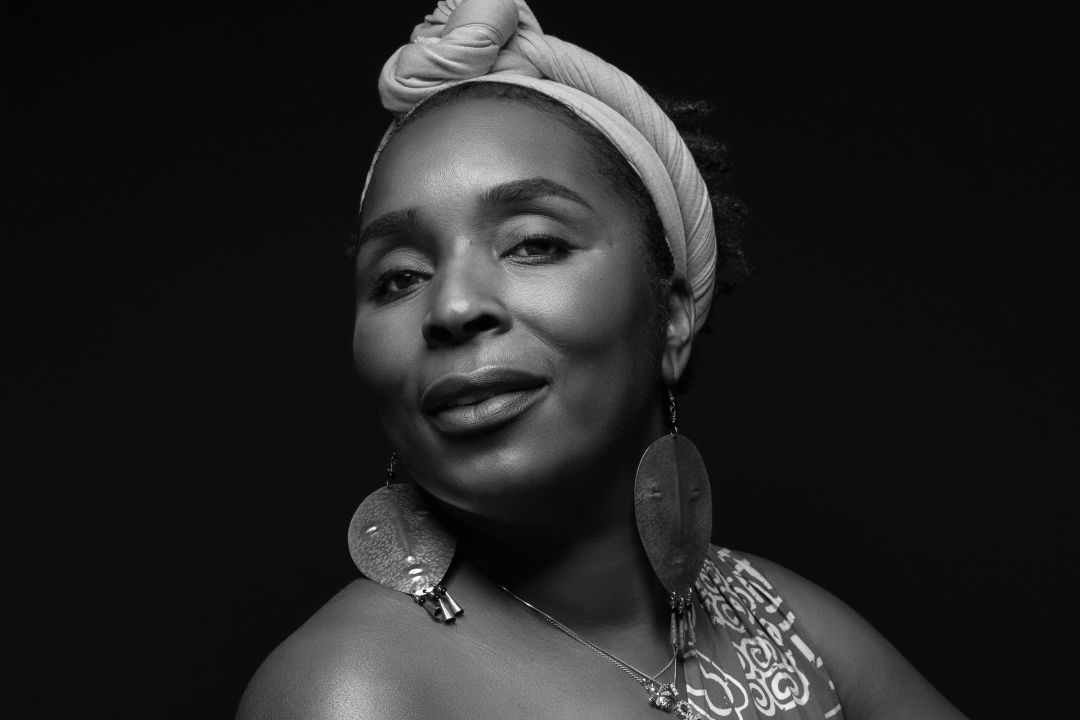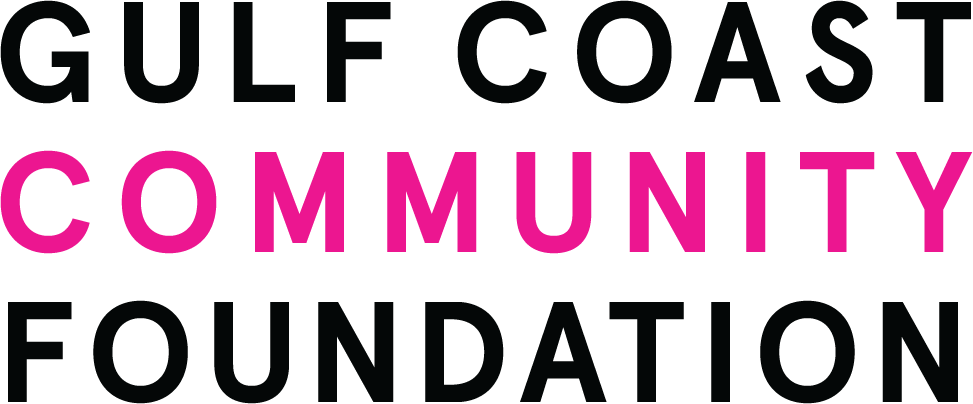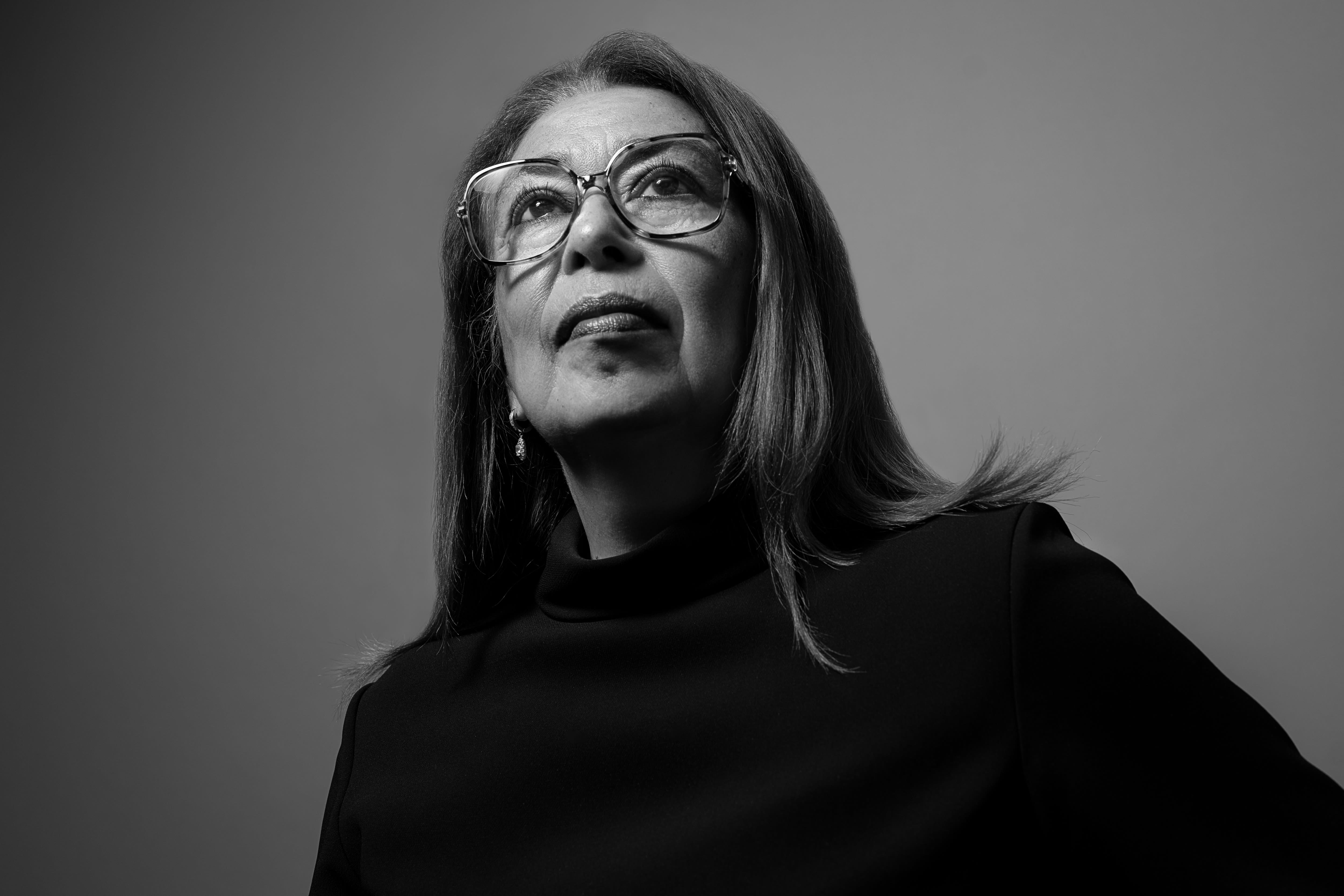Tomeika Hunter-Koski on Serving in the Army, Education and Her Charitable Work in Africa
This article is part of the series Listening to Diverse Voices, proudly presented by Gulf Coast Community Foundation.

Tomeika Hunter-Koski
Image: Michael Kinsey
Born and raised in Atlanta, Tomeika Hunter-Koski is an entrepreneur, educator, real estate investor, philanthropist—and one of the first women to enter basic training for the U.S. Army at Fort Sill in Oklahoma in 1998.
After serving in the Army for eight years, she attended Spelman College, a HBCU, and graduated at the top of her class with a bachelor’s degree in early childhood development. Every Spelman graduate is told that they have "a choice to change the world," and Hunter-Koski takes that seriously. “I have an obligation, as a global citizen, to do what I can to sow seeds of good and do my part. Sometimes, that’s just to be kind,” she says.
In 2007, Hunter-Koski joined Manatee County Schools as a kindergarten and first grade teacher, and in 2011, she opened Hunter Kinder Schools in Georgia. Not to be pigeonholed into just one career, Hunter-Koski also pivoted to incorporate Queen Bee Real Estate, based in Bradenton.
In another pivot, in 2019, after a trip to Machangulo, in Mozambique, Africa, Hunter-Koski launched a passion project, Mission Machangulo. The program funds schools and operational supplies, a food bank, and the Machangulo community at large with basic self-care products and needs, and homes for those in need starting at $1,000. Hunter-Koski makes an average of five trips per year, and says the community knows her well and respectfully calls her "Mother."
Hunter-Koski relocated to the Sarasota-Manatee area more than 15 years ago. Today, at 44, she continues her work through her real estate investments, school, and philanthropy. This interview has been edited for length and clarity.
What was your childhood like in Atlanta?
“I’m from the birthplace and home of Martin Luther King, Jr. Growing up, I hadn’t realized that America hadn’t realized the American dream. In my community, I saw Black doctors, lawyers, teachers, and mayors. Every religion and culture peacefully coexisted. Take Buford Highway and you’ll come across diversity that spans from Asian to African to Mexican to Vietnamese. I thought all of America was that way.
“I had a rude awakening the first time I left Atlanta, which was in high school. I was a member of a group called PRIDE, where high schoolers educate younger students to not do drugs. We headed to Missouri in a 15-passenger van and stopped in St. Louis at a gas station. We were too loud, just kids being kids—but that was the first time that I was called the n-word. That’s when I knew Atlanta was something special. When I returned home, I told my granddaddy what happened, who said, ‘Baby, you gotta be careful out there.’ In retrospect, there was nothing my family could say.
“The experience concerned my mother. She didn’t want me to travel anymore, but thankfully, she didn’t stick to her guns. However, the concession she made was that I had to fly, when my friends would go on buses. Her thinking was that it was less likely that the bus would breakdown in a sundown town, or we’d be met by a redneck with shotgun, etc. She found a compromise that made her feel safe, while it allowed me to grow, develop and thrive while having new experiences.
“I was shocked as I explored cities outside of Atlanta and their vast differences. Atlanta’s slogan is that it’s ‘a city too busy to hate.’ This emerged in the 1950s as a campaign to fight racism and promote business in Atlanta.”
You were one of the first cycle of women to enter basic training for the Army at Fort Sill in Oklahama. The training equipment hadn't even been modified, making it exponentially more difficult. Many, as they say in the military, "washed out." What was that like?
“Against all odds, I finished. After that experience, I knew that I could do anything. Plus, I would not give those boys the pleasure of seeing me fail.”
What was it like to be a Black woman in the Army?
“In the enlisted ranks, and in general, Black people share a bond. We don’t have to know each other to have an unspoken connection. Plus, being in the military was like being in a fraternity. There’s an understanding that we live and die as a culture: I’ve got your back and you’ve got mine. That exists in Black culture, anyway, but add the threat of war, etc., and I gained brothers and sisters.”
Did you experience racism in the military?
“I experience more racism outside of the military. When I’m wearing an insignia that signifies that I am veteran, I can experience kindness from the same people who may have been nasty to me yesterday.”
Moving on to your education background, what is misunderstood about the early childhood development of children of color?
“Overwhelming research exists in over-punishing and misdiagnosing children of color. For example, a European school conducted an unconscious bias test with its teachers in which the teachers would click on [a photo of] either a Black or white child when a child was disruptive. The [majority of] educators held the cursor on children of color. There was no expectation that the white kid was disruptive. When you are a hammer, everything looks like a nail."
What does that mean for students?
“Unfortunately, that manifests negatively for Black and brown children, especially males. Then add in the cultural differences in terms of the way Black people communicate, and you can see the problem unfolding. Consider the direct correlation from the school-to-prison pipeline.
“When you look at history, Black children did better in school shacks before integration. Everyone from teachers to preachers to mothers were invested in the education and success of the students—it was an intellectual and emotional investment by people who looked like them. Integration, or de facto desegregation, was great for things like access to what Black students didn’t have, but it was a brain drain on the Black community.
“We need culturally responsive pedagogy. Teach children where they are. I could be the best educator and teach everything in textbooks; however, if I don’t connect with a student, then they are not hearing me.”
Tell us about Mission Machangulo.
“In the last few years, as America has had racism, social injustice and police brutality at the forefront of the news, I began looking for peace, hope, and joy. When I visited Machangulo in 2019, I was blown away by the simplicity of everyday life. The acute needs of many were obvious, yet the contentment and love were palpable. I found an opportunity to build a bridge connecting Americans in need of community to a village in need of dreams and hope.
“Our mission is to provide the children of Machangulo the essentials they need to thrive at school, home and play. Our goal is also to educate, inspire, and empower the women and girls of the village. I am also proud that Mission Machangulo is paying for three teachers to finish college.
“When I visited in July, I learned that the clinic didn’t have running water due to inability to pay for electricity. After researching, I was able to have a solar-powered well installed so the clinic will always have water.
“We have also built homes for widows and their children and teachers. We provide monthly food services for families, as well as educational materials and school supplies, while also providing electricity for two schools in the community. Because of the power, the school can provide adult literacy classes in the evenings.”
What comes to mind when you reflect on the work you're doing there?
“I connected with Machangulo. I have always believed in giving back, but there’s something special about the tangible exchange versus writing checks to charities, which has felt nothing like knowing that I have changed lives. One example is when, on National Teacher’s Day, I sent $100 to a teacher in Machangulo who makes $130/month. He sent a message that he used the money to pay his water and electric bills for three months, and to buy 15 bags of cement to build a kitchen in his home. Now he can cook meals even if it’s raining.
“The community takes pride in us—Black women who are successful enough to provide humanitarian aid. In African culture, it’s disrespectful to call people by name. For instance, a person is recognized by ‘sister,’ ‘brother,’ ‘cousin,’ or ‘professor.' I am called ‘mother.’
“We are proud to have breathed new life into this community and provided resources and opportunities they never thought possible. Hearing them call me ‘Mother’ and knowing that, every day that I wake up, I am making life better for someone else gives me purpose.”
What would you like your white friends or acquaintances to be doing right now?
“I’ve been thinking a lot about this over the last two years. There seems to be an unwillingness to recognize the humanity in Black people, to recognize that we want the same things that white folks want, such as healthy family, safe homes and an opportunity for growth.
“The current movement to erase our history and struggles from books is a gut punch. I wish white people understood that recognizing and acknowledging the sins of the past doesn’t indict them, but that it's the first step to healing the wounds.
“Children can’t dream what they don’t know is possible. If they aren’t given the opportunity to see themselves positively reflected in textbooks, storybooks, and information provided in schools, movies, and television, how are they to know that they can be the next Ida B. Wells, Nelson Mandela, Mae Jemison, Coretta Scott King, Stacey Abrams, and so on?
“When white people say that they don’t see color, it hurts. When you don’t recognize that I am a Black woman from the south, it means you are choosing to ignore what shaped me and what has made me who I am. Prejudice and racism have caused me to work harder and stand taller. I went to a private school in elementary and middle schools where I was the only Black person in my classes. I had my abilities and intellect in constant question, which forced me to excel.
“For decades, Black people have been told to pull ourselves up by our bootstraps when too many of us don’t have boots—and the powers that be continue to systemically keep the boots out of reach.
“Recognize conscious and unconscious bias and be willing to address it. Don’t laugh at the ‘harmless racist jokes.’ Be willing to share time and space with people who don’t look, believe, vote and live like you do. And have the uncomfortable conversations about the Black experiences without comparing pain or traumas. Listen with empathy and compassion.”
Listening to Black Voices is a series created by Heather Dunhill




